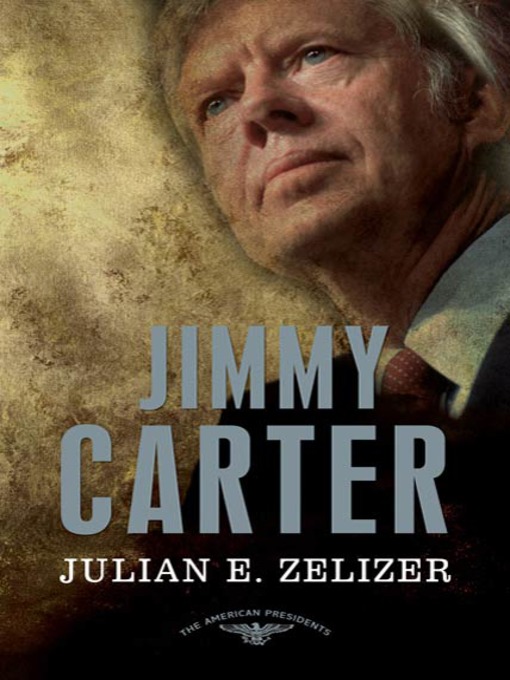The maverick politician from Georgia who rode the post- Watergate wave into office but whose term was consumed by economic and international crises
A peanut farmer from Georgia, Jimmy Carter rose to national power through mastering the strategy of the maverick politician. As the face of the "New South," Carter's strongest support emanated from his ability to communicate directly to voters who were disaffected by corruption in politics.
But running as an outsider was easier than governing as one, as Princeton historian Julian E. Zelizer shows in this examination of Carter's presidency. Once in power, Carter faced challenges sustaining a strong political coalition, as he focused on policies that often antagonized key Democrats, whose support he desperately needed. By 1980, Carter stood alone in the Oval Office as he confronted a battered economy, soaring oil prices, American hostages in Iran, and the Soviet invasion of Afghanistan.
Carter's unpopularity enabled Ronald Reagan to achieve a landslide victory, ushering in a conservative revolution. But during Carter's post-presidential career, he has emerged as an important voice for international diplomacy and negotiation, remaking his image as a statesman for our time.
- Hot, Hot, Hot eBooks!
- Romance - Available now!
- Thriller Titles - ebooks
- Mysteries - Available now!
- New to Sunflower
- Historical Fiction - Available now!
- Biographies - Available now!
- Inspirational Reading
- Cook Up Something New
- LGBTQ
- See all
- Romance - Available now!
- Audiobooks for the Whole Family
- Juvenile Fiction Audio Books
- Top 100 Available Audiobooks
- Hot off the Press!
- Thriller Titles - Available now!
- Mystery Titles - Available now!
- Science Fiction - Available Now!
- Finish a Book from Leavenworth to Burlington
- Finish a Book from Pittsburg to Goodland
- Finish a Book from Manhattan to Dodge City
- See all
- Recently Added for Kids
- Belly Laughs
- Crafts and Cooking for Kids
- Kids Picture Books
- Ready to Borrow Audiobooks
- Newly added Beginning Readers
- Read-Alongs
- Most Popular Kids eBooks
- Get Ready For Summer Reading Program
- Hero Up with Super Books!
- Get Out and Play!
- See all
- First Love: YA Romance
- Most Popular Teen eBooks
- Most Popular Teen Audiobooks
- Disponible ahora - Adolescentes!
- #WeNeedDiverseBooks
- Spooky Stories for Teens
- Spring Awakening
- Favorite Teen Reads
- Books to Rule Us All
- See all


